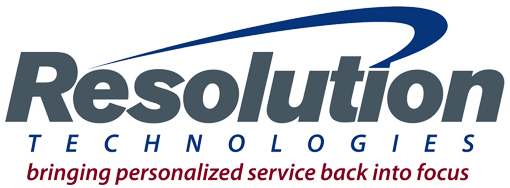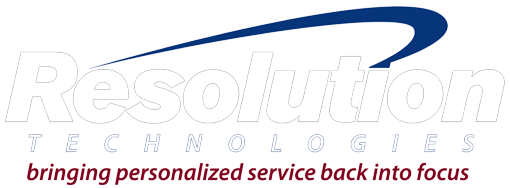What to Expect When Working with a Staffing Agency: A Job Seeker’s Guide
Working with a staffing agency can be a game-changer for job seekers, offering a streamlined path to employment and a wealth of opportunities in various industries. Whether you’re looking for temporary work, a contract position, or a permanent role, staffing agencies are equipped to connect you with employers looking for your skills. However, if you’ve never worked with one before, you may have questions about how the process works and what to expect.
In this guide, we’ll walk you through everything you need to know about working with a staffing agency, from what the process looks like to tips for maximizing the relationship.
What is a Staffing Agency?
A staffing agency, also known as a recruitment or employment agency, acts as an intermediary between job seekers and employers. Companies partner with staffing agencies to help them fill temporary, contract, or permanent roles. These agencies have access to a large pool of job openings and work to match candidates with the positions that best fit their skills, experience, and career goals.
What to Expect When Working with a Staffing Agency
- Initial Consultation and Registration
The first step in working with a staffing agency is usually an initial consultation or registration process. During this stage, the agency will gather information about your career goals, work experience, and skill set.
- Resume Submission: You’ll typically be asked to submit a resume that outlines your experience, education, and qualifications. Make sure your resume is up-to-date and tailored to highlight your strengths.
- Interview with a Recruiter: In many cases, you’ll have an interview with a recruiter to discuss your career aspirations, the type of work you’re looking for (temporary, contract, or permanent), and your availability. This is also an opportunity to clarify any preferences you have regarding work location, salary expectations, and industry.
- Skills Assessment: Depending on the type of work you’re seeking, the agency may ask you to complete a skills assessment. These tests measure your proficiency in areas such as typing, software applications (e.g., Microsoft Office), or industry-specific tasks.
- Job Matching and Opportunities
Once your information is in the agency’s system, the recruiter will work to match you with job opportunities that align with your skills and preferences.
- Access to a Wide Range of Jobs: Staffing agencies often have access to exclusive job opportunities that aren’t posted on public job boards. These positions range from temporary assignments to full-time permanent roles.
- Customized Job Searches: Based on your profile, the recruiter will reach out when they find positions that match your qualifications. You may be contacted for a variety of roles, including short-term assignments, long-term contracts, or even direct-hire placements.
- Quick Turnaround for Temporary Jobs: If you’re open to temporary work, the process can move quickly. You might receive job offers within days, depending on the urgency of the employer’s need.
- Interviewing with Employers
For each job opportunity, your recruiter will facilitate the interview process with the potential employer.
- Interview Preparation: Staffing agencies often help you prepare for interviews by offering insights into the company culture, the hiring manager’s expectations, and the specific role. Take advantage of their insider knowledge to refine your answers and make a great impression.
- Coordinating Interviews: The agency will schedule interviews for you and handle the logistics, so you don’t have to worry about coordinating dates or times with the employer.
- Receiving Feedback: After the interview, your recruiter will follow up with the employer to get feedback. This can be valuable, whether you’re offered the job or not, as it gives you insight into your strengths and areas for improvement.
- Job Offers and Placement
Once an employer decides to move forward, the staffing agency will present you with the job offer.
- Negotiation Support: If you’re offered a permanent position, the agency may help you negotiate salary and benefits. They are incentivized to find a win-win situation for both you and the employer.
- Contract Details for Temp Jobs: If you’re accepting a temporary or contract role, the agency will explain the terms, including the job duration, pay rate, and any benefits (such as health insurance or paid time off, if applicable). You’ll be employed by the staffing agency, even though you’ll be working on-site for the client company.
- Start Date and Onboarding: For temp and contract roles, the agency will inform you of your start date and provide any necessary onboarding information, such as dress code, work schedule, and reporting instructions.
- Ongoing Support
After you’re placed in a position, your relationship with the staffing agency doesn’t end.
- Check-ins and Communication: The agency will often check in with you periodically to ensure the role is a good fit and address any concerns. For longer-term placements, you’ll maintain regular communication with your recruiter to stay updated on job performance or potential extensions.
- Help with Career Growth: If you’re working in a temporary role, the agency can help you leverage these experiences to find full-time work. Many staffing agencies offer resources for skill-building and career development, such as training programs or workshops.
Tips for Maximizing Your Relationship with a Staffing Agency
- Be Honest About Your Goals
Transparency is key to finding the right job match. Be upfront with your recruiter about your career goals, salary expectations, and availability. The more they know about what you want, the better they can tailor their job search to your needs.
- Stay Proactive
While the staffing agency is working on your behalf, you should still be proactive in your job search. Check in with your recruiter regularly, update them on any changes to your availability or preferences, and let them know if you’ve found additional roles you’d like to pursue.
- Be Open to Temporary Work
Temporary or contract positions can open the door to permanent opportunities. Many companies use temp roles as a way to evaluate candidates before offering full-time positions. Even if the role isn’t permanent, it can help you build skills, expand your network, and gain experience in a new industry.
- Ask for Feedback
If you don’t get a job offer after an interview, don’t hesitate to ask your recruiter for feedback. Constructive criticism can help you improve your interview skills and increase your chances of landing a position in the future.
- Maintain a Positive Relationship
Staffing agencies work with a wide variety of clients, and maintaining a positive relationship with your recruiter can lead to more job opportunities down the road. Stay professional, be responsive, and communicate openly to foster a strong relationship.
Conclusion
Working with a staffing agency can greatly expand your job search efforts and connect you with opportunities you may not have otherwise discovered. From the initial consultation to ongoing support, staffing agencies provide valuable services that help job seekers find roles that align with their skills and career goals.
By understanding the process and actively engaging with your recruiter, you can maximize the benefits of working with a staffing agency and position yourself for long-term success in your job search. Whether you’re seeking temporary work, contract roles, or a permanent position, partnering with a staffing agency can be a powerful tool in your career journey.


